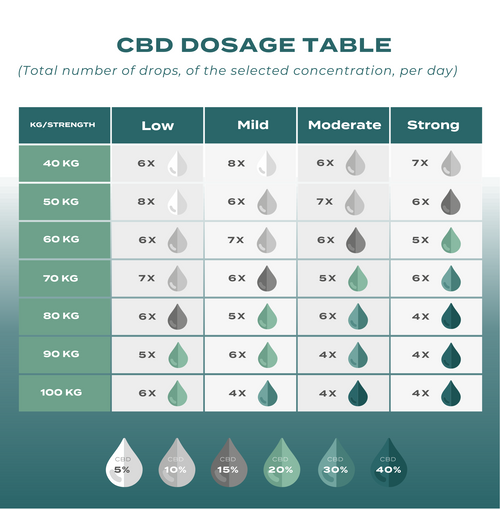Reducing anxiety naturally in 12 steps

Understanding anxiety: What is it?
Anxiety, in its basic form, is a natural and often vital response to stress. It serves as an evolutionary mechanism that alerts us to potential dangers, preparing our bodies for the ‘fight or flight’ response. This sensation often manifests as a feeling of fear or apprehension about future events, which is a normal reaction to uncertain or challenging situations.
However, when these feelings of anxiety become overwhelming, persistent, and disproportionate to the actual level of external threat, they can evolve beyond a normal, functional response. In such cases, if the anxiety becomes so intense that it starts interfering with daily activities, it could be indicative of an anxiety disorder. This is a group of mental health conditions where the primary feature is excessive anxiety that is difficult to control and affects a person’s day-to-day living.
What causes anxiety? Signs of anxiety explained
| Causes of Anxiety |
|---|
| Genetics |
| Brain Chemistry |
| Personality Traits |
| Stressful Life Events |
| Environmental Factors |
| Medical Conditions |
| Substance Use (like caffeine) |
| Traumatic Experiences |
| Social and Cultural Factors |
| Chronic Health Conditions |
| Signs of Anxiety |
|---|
| Constant worry |
| Restlessness |
| Fatigue |
| Difficulty concentrating/ Avoidance of social situations |
| Irritability |
| Sleep disturbances |
| Rapid heartbeat |
| Muscle tension |
| Avoidance of social situations |
| Panic attacks |
When are anxiety and stress harmful?
While some small amounts of anxiety can be motivating, it becomes harmful when it’s constant and uncontrollable, leading to distress and hindering your ability to function normally.
Can I treat anxiety?
Yes, anxiety can be managed effectively through various methods, including natural remedies.

12 tips on reducing anxiety naturally
1. Ditch the alcohol
Alcohol
Ooften used as a coping mechanism for stress, alcohol can actually worsen anxiety symptoms and even trigger panic attacks. It’s a depressant that can disrupt your brain chemistry and sleep patterns, leading to increased anxiety.
2. Exercise and physical activity
Regular physical activity is a significant stress reliever. It helps in releasing endorphins, the body’s natural mood elevators. Exercise can also improve sleep and self-image, contributing to overall mental health and a reduction in anxiety levels.
3. Quit smoking cigarettes
Nicotine, found in cigarettes, is a stimulant that can increase heart rate and feelings of anxiety. Quitting smoking can be challenging, but it can significantly reduce anxiety levels and improve physical health.
4. Limit caffeine intake
Caffeine, a stimulant found in coffee, tea, and energy drinks, can exacerbate anxiety symptoms. Reducing your caffeine intake can help decrease feelings of nervousness, improve sleep quality, and reduce heart palpitations.
5. Meditation & mindfulness
Engaging in mindfulness practices and meditation can create a sense of calm, improve concentration, and reduce stress. These practices help you stay grounded and focused on the present, reducing the impact of anxiety.
6. Prioritise a good night's sleep
Quality sleep is vital for mental health. Lack of sleep can exacerbate anxiety and affect your mood and cognitive functions. Establishing a regular sleep schedule and creating a restful environment are key to improving sleep quality.

7. Practice breathing exercises
Deep breathing techniques, such as diaphragmatic breathing, can help activate the body’s relaxation response, reducing anxiety. These exercises can be particularly useful during moments of heightened stress or anxiety.
8. Eat a healthy diet
A balanced diet nourishes the brain and body. Foods rich in vitamins, minerals, and antioxidants can help regulate mood and energy levels. Avoiding processed foods, which can cause blood sugar spikes and crashes, is also helpful.
9. Incorporate tea into your routine
Certain herbal teas, like chamomile, are known for their calming properties. They can help soothe the mind and reduce stress.Incorporating such teas into your daily routine can provide a natural way to relax.
10. Try aromatherapy
Essential oils, like lavender massage oil are used in aromatherapy to promote relaxation and reduce anxiety. These natural scents can be used in diffusers, applied to the skin, or inhaled directly for a calming effect.
Remember, it’s important to consult with a healthcare professional before making significant changes to your lifestyle, especially if you have chronic health conditions or are taking medication.
11. Seek friends
Turning to friends is a highly effective strategy for reducing anxiety. Social support plays a critical role in managing stress and emotional well-being. Engaging in conversations, sharing concerns, or simply spending time with friends can provide a sense of belonging and emotional relief.
Friends can offer empathy, perspective, and even advice based on their own experiences. Additionally, social interactions can boost mood-enhancing neurotransmitters like serotonin and dopamine, which can help alleviate feelings of anxiety.
12. Make your Mental Health a priority
Managing stress is crucial for maintaining good mental health and reducing anxiety. Effective stress management involves identifying stressors and implementing coping strategies like mindfulness, exercise, or relaxation techniques.
Activities like meditation, yoga, or engaging in hobbies can redirect focus from anxiety-inducing thoughts and promote mental relaxation.
Moreover, adopting a healthy lifestyle, including adequate sleep, balanced nutrition, and regular physical activity, can significantly improve one’s ability to handle stress, thereby contributing to overall mental well-being.
It’s important to remember that if these steps don’t work for you, there is no shame in speaking with a doctor about the next steps medically. Everyone’s journey with mental health, and anxiety in particular is unique. Likewise, so should your treatment be unique to you.
Natural solutions for anxiety & stress: Introducing Naturecan’s CBD oil
Naturecan offers a range of products designed to help manage anxiety and stress naturally, including calming stress relief tablets and anxiety drops.
Natural remedies for anxiety explained
1. Calming stress relief tablets
Naturecan CBD Oil Capsules
The cannabis plant has been used for thousands of years, and continues to be used by millions of people across the world today. No matter your age, people of all kinds have found themselves using cannabis derived products like CBD, from everyday individuals to professional athletes.
Looking for our fastest acting CBD Capsule? then our Micellar CBD Capsules are the best choice for you! Containing NovaSol technology, these capsules have a higher bioavailability and are absorbed by the body up to 16x faster than other products.

2. Calming anxiety drops
Naturecan CBD Oil
Our broad-spectrum CBD Oil 10% contains multiple cannabinoids, the compounds work together to produce an ‘entourage effect’. This means each active element, including all-natural plant terpenes, combine to boost the oil’s natural properties.
With extensive third-party lab testing, we guarantee a quality CBD Oil 10% that meets your needs, morning and night, with non-detectable levels of THC (0.01%) guaranteed.


3. Hemp Tea
Naturecan Hemp Tea
Introducing our brand new Hemp Teas at Naturecan. Whether you need a refreshing start to your day or you want to unwind throughout your night-time routine, we have you covered with Hemp, Lemon & Ginger Tea, or Hemp & Camomile Tea to refresh your senses this season.
Our Hemp Tea Bags also contain chamomile, which has potential relaxing properties, and 15mg CBD per bag with non-detectable THC (<0.01%). This allows you to gain the potential benefits of CBD in a delicious drink you can enjoy at whatever time suits you best.

Finding your CBD dosage: What's the best dose for me?
Dosage differs with each person, depending on a range of factors such as weight, height, and reasons for taking CBD. If you’re unsure how to take CBD oil, we recommend taking 1-2 drops at first to see how your body reacts before increasing your amount.
The FSA recommends a maximum total daily CBD dose of 70mg. This includes any additional products, so please ensure that you never exceed this amount. While following this guidance, you can manage your daily dosage based on what works best for you, and combine various CBD products if desired.
To find your CBD dose, click on our Dosage Calculator below:
Reducing anxiety FAQs
Can anxiety be cured naturally?
While not always curable, natural methods can significantly reduce anxiety symptoms.
How do you calm down anxiety instantly?
Techniques like deep breathing and mindfulness can provide immediate relief.
How can I get over my severe anxiety?
Consistent use of natural remedies combined with professional guidance can be effective.
How can I sleep better if I have anxiety?
Establishing a calming bedtime routine and practising relaxation techniques can help.
How to sleep with anxiety?
A combination of lifestyle changes, natural remedies, and professional support is often beneficial.
How much sleep do we need?
Adults generally need 7-9 hours of sleep per night. For severe anxiety, professional counselling, medication, lifestyle changes, and relaxation techniques can be effective.
What helps with severe anxiety?
Deep breathing, meditation, and staying in a calm environment can help to calm an anxiety attack at night?
Conclusion: Natural remedies for anxiety
While anxiety can be a challenging condition, incorporating these natural remedies and lifestyle changes can offer significant relief and improve overall well-being.
Remember, it’s always advisable to consult with a healthcare professional for personalised advice and treatment options.
Natural remedies can be a complementary approach to traditional treatments, offering a holistic way to manage anxiety and stress.
By understanding your anxiety triggers and implementing these tips, you can take proactive steps towards a calmer, more balanced life.
References:
1. https://pubmed.ncbi.nlm.nih.gov/10721495/
2. https://pubmed.ncbi.nlm.nih.gov/6091217/
3. https://pubmed.ncbi.nlm.nih.gov/26231942/
4. https://pubmed.ncbi.nlm.nih.gov/12204388/
5. https://pubmed.ncbi.nlm.nih.gov/1609875/
6. https://pubmed.ncbi.nlm.nih.gov/34979437/
7. https://pubmed.ncbi.nlm.nih.gov/31436595/
8. https://pubmed.ncbi.nlm.nih.gov/36993403/
9. https://pubmed.ncbi.nlm.nih.gov/31758301/
10. https://pubmed.ncbi.nlm.nih.gov/36738535/





